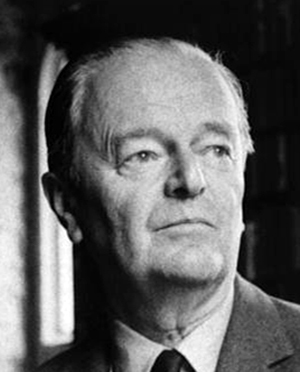
Kenneth McKenzie Clark, Baron Clark OM CH KCB FBA (July 13 1903 – May 21, 1983) was a British author, museum director, broadcaster, and one of the best-known art historians and aestheticians of his generation, writing a series of books that appealed to a wide public while remaining a serious scholar. In 1969, he achieved international fame as the writer, producer and presenter of the BBC Television series Civilisation, which pioneered television documentary series combining expert personalized narration with lavish photography on location. (Click here for full Wikipedia article)
-----
A lot of people you think you know you don't know until you find out you don't know then it may be too late to know.
A margin of wealth is helpful to civilization, but for some mysterious reason great wealth is destructive.
All great civilizations, in their early stages, are based on success in war.
Bright-minded young people think poorly of existing institutions and want to abolish them. Well, one doesn't need to be young to dislike institutions. But the dreary fact remains that, even in the darkest ages, it was institutions that made society work, and if civilization is to survive society must somehow be made to work.
Changes in the structure of society are not brought about solely by massive engines of doctrine.
Children who are treated as if they are uneducable almost invariably become uneducable.
Heroes do not easily tolerate the company of other heroes.
However complex and solid it seems, civilization is actually quite fragile. It can be destroyed.
I believe that in spite of the recent triumphs of science, men haven't changed much in the last two thousand years; and in consequence we must try to learn from history.
I believe that order is better than chaos, creation better than destruction. I prefer gentleness to violence, forgiveness to vendetta. I believe that in spite of the recent triumphs of science, men haven't changed much in the last two thousand years; and in consequence we must still try to learn from history. History is ourselves.
In time of war all countries behave equally badly, because the power of action is handed over to stupid and obstinate men.
It is lack of confidence, more than anything else, that kills a civilization. We can destroy ourselves by cynicism and disillusion, just as effectively as by bombs.
Lives devoted to Beauty seldom end well.
No nude, however abstract, should fail to arouse in the spectator some vestige of erotic feeling, even if it be only the faintest shadow- and if it does not do so it is bad art and false morals.
One musn't overrate the culture of what used to be called 'top people' before the wars. They had charming manners, but they were as ignorant as swans.
Only the bad artists of the nineteenth century were frightened by the invention of photography; the good ones all welcomed it and used it.
Opera, next to Gothic architecture, is one of the strangest inventions of western man. It could not have been foreseen by any logical process.
People sometimes tell me that they prefer barbarism to civilization. I doubt if they have given it a long enough trial. Like the people of Alexandria, they are bored by civilization; but all the evidence suggests that the boredom of barbarism is infinitely greater.
Sweeping, confident articles on the future seem to me, intellectually, the most disreputable of all forms of public utterance.
The first flash of insight which persuades human beings to change their basic assumptions is usually contained in a few phrases.
The great achievement of the Catholic Church lay in harmonizing, civilizing the deepest impulses of ordinary, ignorant people.
The great artist takes what he needs.
We are so much accustomed to the humanitarian outlook that we forget how little it counted in earlier ages of civilization.
-----
(May 21 is also the birthday of Alexander Pope and Al Franken)
Categories: Kenneth Clark, Quotes of the day
Home KGB on Bluesky KGB on Substack
KGB Stuff Commentwear E-Mail KGB
Donate via PayPal

















